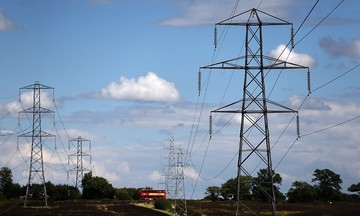In Official Dispatch 159 issued on 7/9 concerning fiscal and monetary policy management, Prime Minister Pham Minh Chinh directed the State Bank of Vietnam to closely monitor domestic and global gold prices and implement necessary measures to stabilize the market. The goal is to narrow the gap between international and domestic gold prices, preventing negative impacts on the monetary market (exchange rates, interest rates, and foreign exchange) and the macroeconomy.
The State Bank must increase inspections to detect and strictly handle violations, particularly manipulation, hoarding to drive up prices, and illegal trading that destabilize the gold market, according to the dispatch.
 |
Gold bars at SJC headquarters in District 3, 3/2025. Photo: Quynh Tran |
Gold bars at SJC headquarters in District 3, 3/2025. Photo: Quynh Tran
The prime minister’s directive comes as gold prices have been rising continuously for over two weeks. This morning, the selling price of SJC gold bars was quoted at 135.1 million VND per tael, a decrease of 300,000 VND compared to the previous weekend. However, this remains approximately 20 million VND higher than the global price.
At last weekend’s government meeting, State Bank Deputy Governor Doan Thai Son attributed the price surge to rising global gold prices, combined with market expectations of further increases. This has led to a significant rise in demand. Another contributing factor is the limited domestic supply due to the State Bank halting the sale of SJC gold bars amidst a shift to a new management mechanism.
In addition to gold prices, core inflation remaining above 3% for several months, high credit growth, and exchange rate fluctuations present significant challenges for the banking sector's management.
In the dispatch, the prime minister instructed the State Bank to closely monitor market trends and domestic and international economic conditions for proactive monetary policy management. Monetary policy must be synchronized with fiscal and other macroeconomic policies to prioritize growth while ensuring macroeconomic stability, controlling inflation, and maintaining key economic balances.
The State Bank must direct credit institutions to reduce costs, simplify procedures, and increase digital transformation to create room for lower lending rates, while directing credit towards production and business sectors. They are tasked with effectively implementing credit programs for social housing, infrastructure investment, digital technology, and support for production linkages, processing, and consumption of high-quality rice.
Furthermore, the banking sector needs to address bad debts, strictly control credit flow to high-risk sectors, and take strict action against banking violations such as manipulation, cross-ownership, and lending to related businesses. The entire system needs to complete its digital transformation to control risks and monitor cash flow using technology by Quarter IV.
The prime minister also reiterated the need to develop a roadmap and pilot program to eliminate credit growth targets (credit room), to be implemented from 2026. He also emphasized promoting cashless payments, strictly managing the foreign exchange market, and stabilizing the value of the Vietnamese dong.
Phuong Dung












